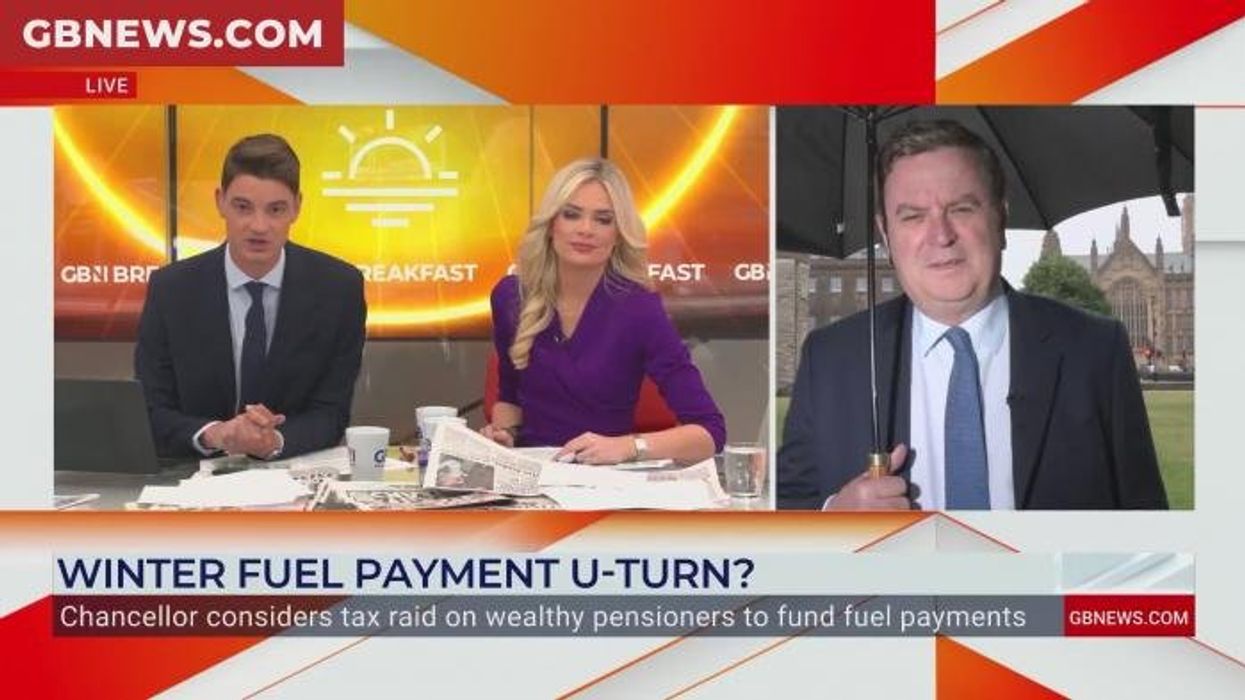'We are paying for the privilege of being made poorer' - Britons face record taxes while public services fall behind

GBNEWS

From NHS waiting lists and pothole-ridden roads, concerns grow that taxpayers are paying record sums for unreliable public services
Don't Miss
Most Read
British taxpayers are contributing more to the government than at any time in the last seven decades.
Yet many are questioning what they are getting in return.
From NHS waiting lists and pothole-ridden roads to rising public transport fares and under-resourced schools, concerns are growing that taxpayers are paying record sums for increasingly unreliable public services.
Taxpayers in the UK pay a wide range of taxes, including: Income Tax, Capital Gains Tax, Council Tax, National Insurance, VAT, Inheritance Tax, and Stamp Duties.
In theory, these contributions are meant to fund essential services and infrastructure for Britons, ensuring safe streets, good healthcare, dependable transport, a stable currency and a social safety net for those who need it most.
However, many Britons are now asking whether the system is delivering value for money and even more so, where is that value going. NHS waiting times have reached record levels, with some patients waiting months or even over a year to see specialists.
Roads across the country are deteriorating, with growing numbers of potholes damaging vehicles and causing accidents.
Public transport reliability has declined, and regular commuters face regular delays alongside rising fares.

Regular commuters face regular delays alongside rising fares
| GETTYAt the same time, police forces have faced criticism for slow responses to crimes such as burglaries and vandalism, while schools report larger class sizes and fewer resources.
Inflation is officially around four per cent, though many households realise the true cost of living is rising much faster.
Despite the visible decline in services, the UK’s overall tax burden continues to rise. Total government tax receipts are expected to exceed £1.1 trillion by the end of 2025, according to forecasts.
LATEST DEVELOPMENTS

The overall NHS waiting list for hospital treatment in England was approximately 7.39 million in September 2025
| NHSBritain is enduring its highest tax levels since the early 1950s, while government borrowing continues to grow by around £80billion a year. National debt now stands close to £2.8trillion - nearly £100,000 per household.
Critics argue that decades of wasteful spending and unaccountable fiscal management have left the country in this position.
Successive governments have borrowed heavily to plug short-term gaps rather than prioritising long-term progress.
As a result, the UK faces both high levels of public debt and persistent inflation, which coupled with unsustainably high immigration, erode living standards.

When gold’s value rises relative to sterling, the purchasing power of the holder’s savings increases
| GETTYCameron Parry, Founder and CEO of bank challenger TallyMoney, links much of the cause to what he describes as the debasement of the pound.
“Since 1971, the pound sterling has been unaccountable to anything of real, tangible asset value and the people in power making decisions about the pound's rate of devaluation bear none of the consequences of their decisions; quite the opposite, printing money out of thin air helps their career ambitions.” he said.
“This has enabled our elected officials to ‘fail upwards’ as being able to ‘magic up’ money, rewards poor decision making and helps short term popularity. But the result of the fiat currency system 50-year experiment is, we the public are paying for the privilege of being made poorer.”
Mr Parry argues that: “the ability to create money without restraint has encouraged poor monetary and fiscal policies, redistributed the wealth of the population, and weakened the real value of people’s earnings and savings. Policies such as quantitative easing and large-scale borrowing, introduced to stimulate the economy or fund spending commitments, have expanded the money supply and fuelled inflation.”
“The outcome is that the public is effectively funding its own decline. Higher taxes are required to service debt and sustain profligate public spending, while inflation continues to reduce the purchasing power of wages and savings. Taxpayers are left contributing more but receiving less in return, and the situation has become untenable.”
Mr Parry’s challenger currency, TallyMoney, presents itself as a solution to this problem. The organisation offers an alternative system where account holders own physical gold through an everyday account, rather than pounds sterling. Each ‘tally’ represents one milligram of gold stored in a Swiss vault on behalf of the customer. When gold’s value rises relative to sterling, the purchasing power of the holder’s savings increases. The company argues this model protects people’s money from inflation and government borrowing, offering what it describes as “real money that can’t be printed, manipulated, or inflated away.”
According to Mr Parry, TallyMoney’s customer growth reflects a growing frustration among UK taxpayers who feel the public services they get no longer reflect the taxes they pay.
As Britain continues to shoulder a record tax burden and mounting national debt, many are asking the same question: how much longer will people keep paying more, only to receive less?










